'Stansted 15' protesters' counter-terrorism convictions appealed
- Published
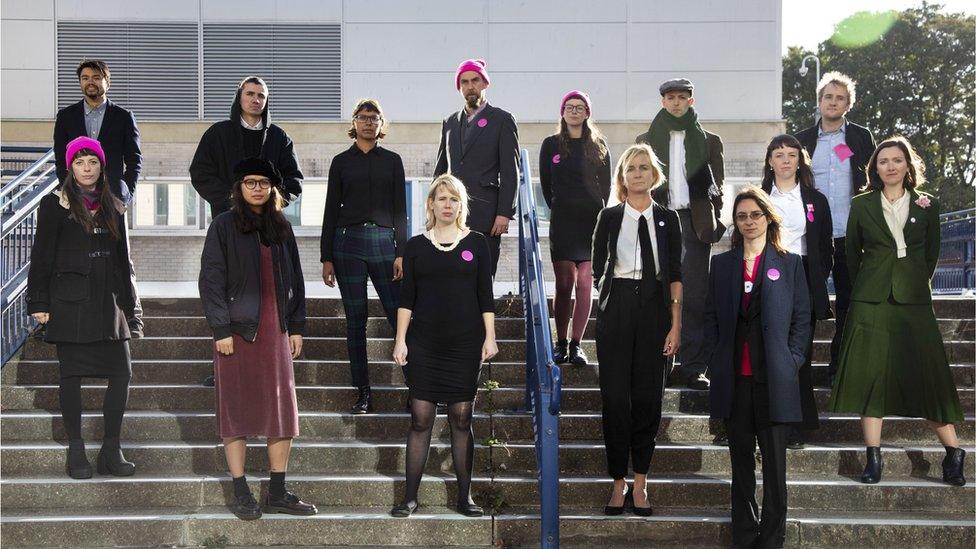
The "Stansted 15" tried to stop an aircraft being used to deport people to African countries
Protesters who broke into Stansted Airport to stop a plane deporting people to Africa have begun an appeal to challenge their convictions.
The "Stansted 15" were convicted under counter-terrorism legislation on 10 December 2018.
The protesters cut through the perimeter fence and locked themselves together around a Boeing 767 jet.
The Court of Appeal was told laws used to convict them were intended to deal with terrorism, not demonstrators.
The protesters all pleaded not guilty, but were convicted of the intentional disruption of services at an aerodrome in March 2017 under the Aviation and Maritime Security Act (Amsa) 1990.
The jet they targeted had been chartered by the Home Office to transport people from UK detention centres for repatriation to Africa.
In February 2019 three were given suspended jail sentences, and the other 12 were handed community orders.
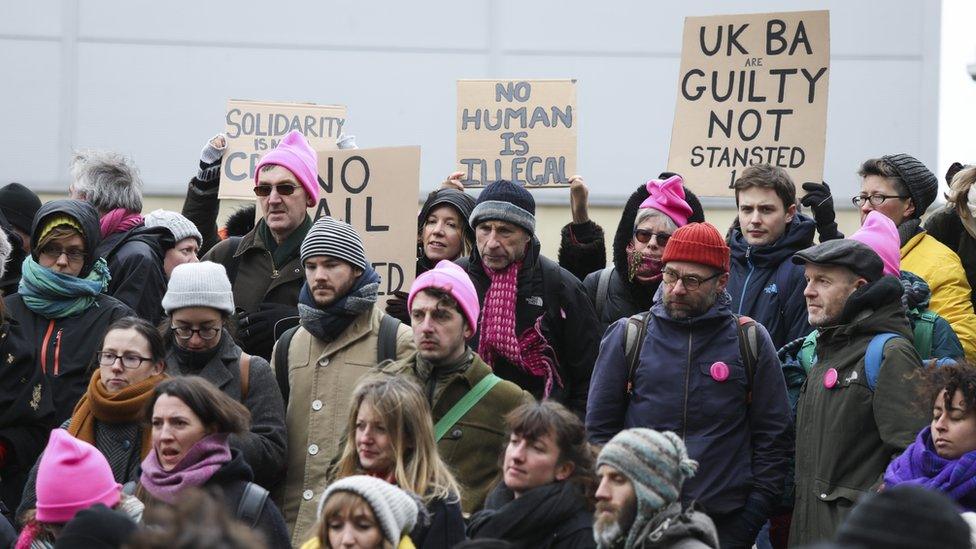
Protesters gathered outside Chelmsford Crown Court during the trial of the 15
At the beginning of the appeal hearing in London, lawyers for the activists argued the legislation used to convict the 15 is rarely used and not intended for this type of case.
The High Court heard the demonstrators' lawyers were prevented from arguing their actions were necessary to the jury by the judge at the trial, because they were not trying to prevent an immediate domestic crime.
However, they said stopping the plane was necessary to prevent the deportation of people at risk of harm in their destination countries, including LGBT people believed to be on board.
Lead counsel for the protesters, Clare Montgomery QC, told the court each defendant believed there was "an immediate threat" and their actions were "effectively the last opportunity that was available to anyone in this country".
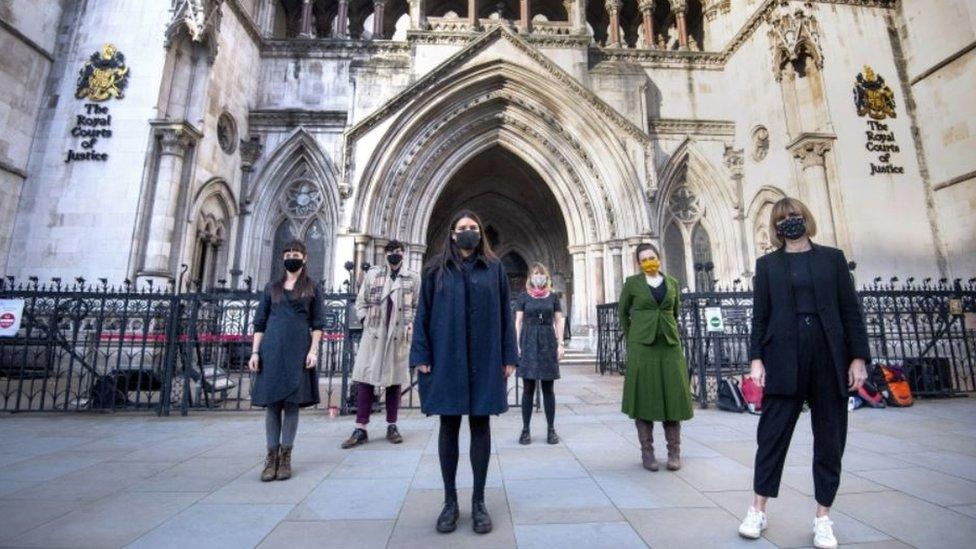
Six members of the "Stansted 15" were photographed outside the court on the first day of the appeal hearing
Documents presented to the court by the group's barristers stated that the Amsa legislation was there to deal with "unlawful violence of the utmost seriousness" such as terrorism, not demonstrators.
Lawyers for the group also argued that the Attorney General - who is required to sign off on the use of this legislation - should not have granted consent for the law to be used in this case, that the Crown Court judge, Judge Christopher Morgan, made errors in summing up the case, and there were errors in directions given to the jury.
In their written argument, barristers representing the Crown said the convictions were safe and the trial judge was correct.
They said the fact the protesters had planned their action weeks in advance was not consistent with a defence of necessity, and that there are strict limits on when that can be used.
The appeal hearing is expected to last three days.

Find BBC News: East of England on Facebook, external, Instagram, external and Twitter, external. If you have a story suggestion email eastofenglandnews@bbc.co.uk
- Published22 August 2019

- Published8 January 2019

- Published10 December 2018
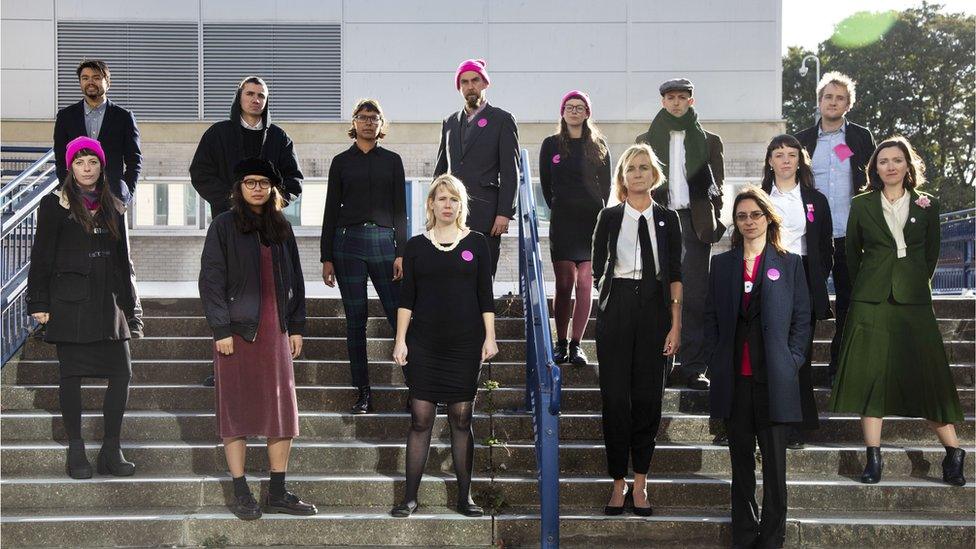
- Published6 November 2018
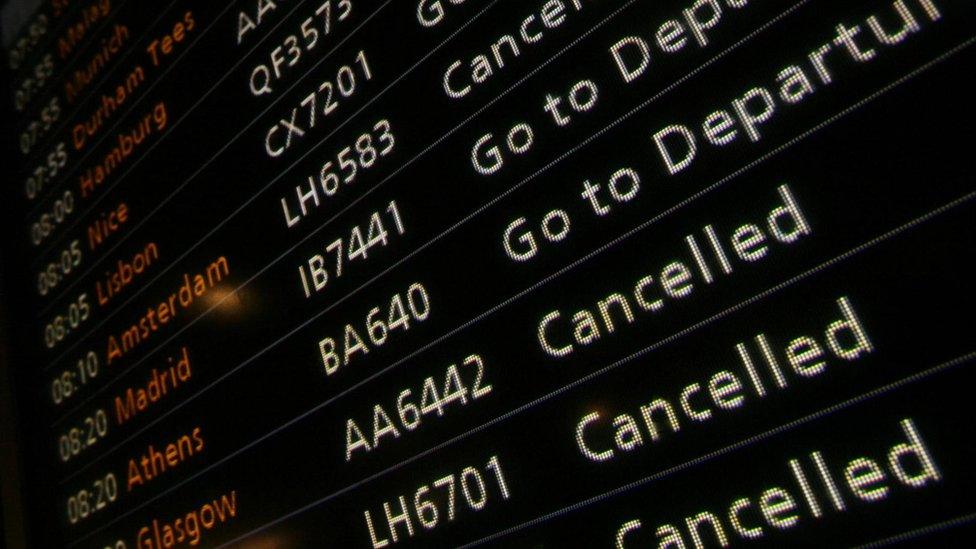
- Published2 October 2018
